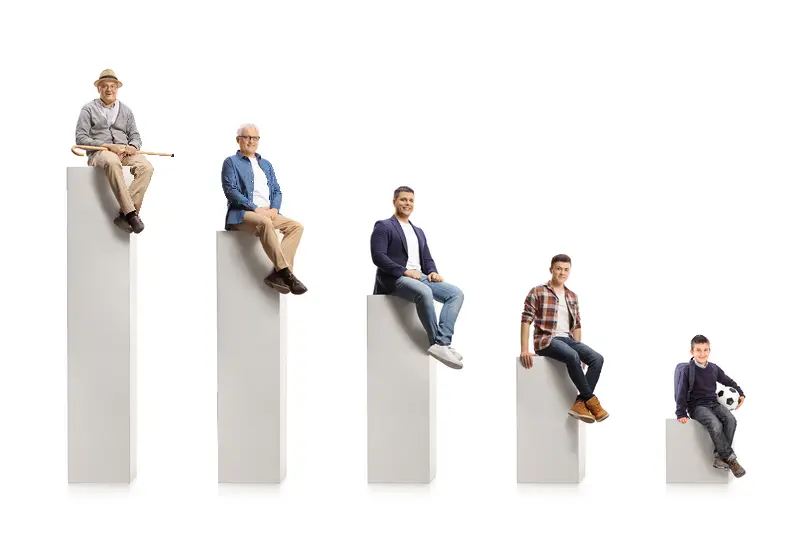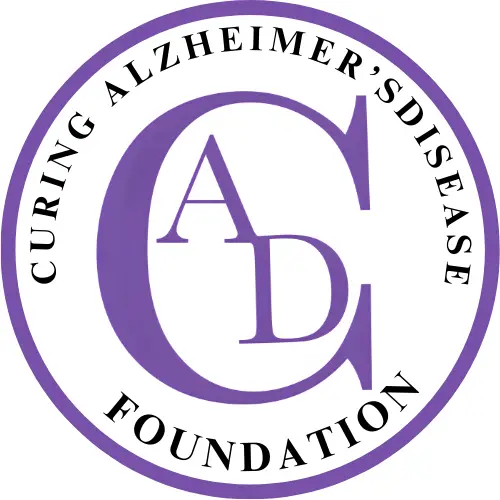Based on our knowledge and experience, here’s what we think you would want to know about Late Onset Alzheimer’s Disease (LOAD). In a follow up article (Part II), we will offer advice gained from experience and current literature that can help you possibly slow the disease down until a Cure is available for widespread use.
But for now, we’d like you to –
1) Know that there are two forms of Alzheimer’s – Early Onset Alzheimer’s Disease and Late Onset Alzheimer’s Disease. Early Onset (which is rare) occurs before age 65. Late Onset Alzheimer’s (which is what most of us think of when talking about Alzheimer’s) occurs after age 65. (1) This article focuses on this second form of Alzheimer’s Disease.
2) Know that without an autopsy, a clear-cut diagnosis for this disease is impossible. Therefore, it’s critical that other medical reasons that can look like early-stage Alzheimer’s disease have been ruled out. Conditions with similar cognitive symptoms include: depression, stress, diabetes, thyroid disfunction, liver or kidney disease, vitamin deficiencies, even exposure to low levels of carbon monoxide. These are easy tests to perform and will give you the reassurance that a presumed Alzheimer’s diagnosis is truly accurate.
3) Know that Primary Care/Family Practice/Internists are in no position to diagnose AD– and after ruling out all medical and psychological explanations for your decline – their duty is to refer you to a Neurologist for further testing and treatment.
4) Know that many people over the age of 60 have some Alzheimer’s pathology already in their brains (2a) and yet they show no signs of cognitive impairment. So, you have more and are seeing a decline in your ability to think – it’s time to do something about it.
5) Know that Alzheimer’s Disease is generally contracted 10-15 years before symptoms force a diagnosis. The median age for diagnosis is 79.9 (2), therefore the median age for contracting this disease is estimated to be 65-70 years of age.
6) Know that one of the top risk factors for Alzheimer’s is having gum disease. (3) (4)
A fact long suspected in Dentistry, and just now entering the science community.
7) Know that Alzheimer’s Disease skyrockets 10-15 years after a country changes their position on prophylactic antibiotics during dental procedures. It’s too consistent to be coincidental.
8) Know that Alzheimer’s Disease began to skyrocket 10-15 years after our medical community stopped endorsing Hormone Replacement Therapy for post-menopausal women.
9) Know that most auto-immune diseases that are considered risk factors for Alzheimer’s are risk factors because they overlap with the higher risk that gender plays in contracting Alzheimer’s. Being female increases your risk of contracting Alzheimer’s substantially. And women make up the bulk of those diagnosed with Sjogren’s Syndrome, Rheumatoid Arthritis, Lupus, even type II diabetes that strikes after menapause.
10) Know that aging is your number one risk for contracting late-onset Alzheimer’s Disease. This is LARGELY because of something called Senescence – which is defined as the loss of our cell’s ability to divide and grow. This, in turn affects every biological system in your body – in the instance of Alzheimer’s Disease, senescence impedes your brain’s ability to protect itself from foreign pathogens like bacteria.
11) Know that Alzheimer’s is a disease of inflammation. Which is why the most commonly prescribed Alzheimer’s drugs (that have been shown to reduce brain inflammation), seem to work initially (5). But as the diseased brain becomes more inflamed, the effectiveness of these drugs quickly becomes insufficient. Which is why you should ….
12) …Know that research continues to prove that current Alzheimer’s drugs have little to no positive effect (6). Yet these drugs come with a very serious list of side effects. Therefore, you should be challenging your provider to show you the studies that support his/her recommendation that you should be taking these drugs. You will find that no Alzheimer’s drug has been studied longer than 5 years. So, no one really knows what they are doing to your brain’s chemistry long-term.
13) Know that the idea that Alzheimer’s is inherited can be disproven by statistic– 70% of Late Onset Alzheimer’s Disease (LOAD) cases have no family history for Alzheimer’s (7). So, it’s time to stop blaming genetics and time to start looking for what you can do now.
Stay tuned for our second article in this series that will help offer ideas on what you can do now to potentially protect yourself against Alzheimer’s Disease.
Feel free to visit our website at www.CuringAlzheimersDisease.comfor more information, and be sure to subscribe to this blog www.Curing-Alzheimer’s.com for updates on what is published next.
# # #
Citations:
(1) Types of Alzheimer’s Disease
(2a) Non-Demented Individuals with Alzheimer’s Disease Neuropathology: Resistance to Cognitive Decline May Reveal New Treatment Strategies (2016)
(2) Time from diagnosis to institutionalization and death in people with dementia (2020)
(3) ) Oral bacteria may be responsible for Alzheimer’s disease – Harvard University 2019
(4) Large study links gum disease with dementia – NIH 2020 https://www.nia.nih.gov/news/large-study-links-gum-disease-dementia#:~:text=Among%20those%2065%20years%20or,to%20further%20increase%20those%20risks
(5) Donepezil doesn’t cure Alzheimers, it just treats AD inflammation 2020
(6) Current Alzheimer’s drugs do little to help patients – 2020
(7) Maternal transmission of Alzheimer’s disease: Prodromal metabolic phenotype and the search for genes
About the author: Anna Shelander is a journalist and question-asker who rarely accepts “no” for an answer. Which is why, when her dad (Dr. Crandall ) became ill with an unexplainable disease, he asked her to come along for the ride. The two worked unsuccessfully within the medical community to find a diagnosis, then branched into the research community where answers finally began to appear. It was at this level of science that Anna and her father began to parse together the drug protocols that dramatically improved his cognition.
Disclaimer
No content on this site, regardless of date, should ever be used as an absolute substitute for direct medical advice from your doctor or other qualified clinician. This article should be viewed as advice that is based on current research regarding the potential to slow and possibly prevent Alzheimer’s Disease.
Copyright © 2022 Curing Alzheimer’s Disease [EIN #88-3154550] All Rights Reserved. This information is not designed to replace a physician’s independent judgment about the appropriateness or risks of a procedure for a given patient. Always consult your doctor about your medical conditions. Curing Alzheimer’s Disease.com does not provide medical advice, diagnosis or treatment. Use of the site is conditional upon your acceptance of our terms of use.
Age is your number one (#1) risk for developing Alzheimer’s

Why is age your number one risk for developing Alzheimer’s Disease?
Well, when you think about the fact that we humans are made up of over 100 trillion cells…And as our body ages, those cells all become less and less effective. The reason for this phenomena is greatly debated and under constant study. And when science finally figures it out, someone will have found the ephemeral “Fountain of Youth”. But until that time, all that science can guaranty is that your cells – and therefore your body – is responding with 99%, then 95%, then 89% of the 100% you require of it to battle whatever life sends your way. Meaning age makes you less effective at everything, including fighting off infection from outside yourself and even from within yourself.
And when it comes protecting you, this same diminished return is seen time and time again. Your skin, which is our largest organ and what protects us from what our world throws at us, looses cells at an alarming rate as we age. The consequence? Epidermal atrophy, aka a lack of flexibility – or wrinkles. The skin cuts easier, heals slower and is more prone to issues related to exposure (sun/wind/temperature).
Where your skin is your largest organ, your most protected organ is your brain. It doesn’t co-mingle with the other organs and systems in your body. Instead, your brain is securely on it’s own to manage all the stimulating inputs and resulting outputs it must manage 24/7/365. Without your brain, you will cease to exist.
Something this important to your survival (the brain) has a superior defense system which starts with the Blood Brain Barrier (BBB). Different than one would think, this unique fortress exists on a cellular level – not globally as we see with the skull. And because each cell in the entire brain is protected by a membrane that is covered by cells that are literally joined together, the BBB can tightly restrict what can enter the cell. This defense, which can keep bad things out 100% of the time when you are younger, becomes looser and less strict as you age. And with the loosening of these tight junctions, things the brain doesn’t want to let in start to come in.
You might be wondering what types of bad things can gain access to the “immune privileged brain”? Opportunistic pathogens such as bacteria and virus that are floating around in the bloodstream – either from your mouth, your gut or your respiratory and urinary tracts.
And because every year that we age, the brain’s BBB becomes weaker, your odds of these opportunistic pathogens getting past your brain’s BBB increases. And in the case of the microbial hypothesis that the Alzheimer’s Legacy Lab will be working to prove or disprove – having a bacteria enter your brain can potentially result in Alzheimer’s Disease. And this risk increases every decade you live beyond 50. So preventing Alzheimer’s will be your best bet before a cure is discovered.
- Interestingly, the top 10 countries with the highest Alzheimer’s death rates – (meaning highest Alzheimer’s Risk) were also among the healthiest countries. This contradiction has had researchers confused until realizing that these healthier countries also have the highest life expectancy rates. Because their residents are so healthy (Finland as an example), their healthy residents don’t die of heart attacks, or cancer, allowing them to live long enough to contract this disease because, though science has figured out how to prevent some cancers and most heart disease, it still doesn’t know how to slow the degradation of the BBB as the brain ages.
But this “natural” part of aging doesn’t have to result in Alzheimer’s if you have a solid Alzheimer’s Prevention Strategy.
So what can you do to prevent Alzheimer’s as your risk due to age increases?
FIRST: step up your oral hygiene program – see the dentist regularly and follow their direction as if they are prescribing you an Alzheimer’s medication. If you are told you need to receive more professional cleanings in a year – do it! If you are told you need costlier periodontal treatments – do it! and if you’re told that you need to step up your oral home care routine – do it! And ask your hygienist or dentist to SHOW you how to floss and how to brush. Most patients do it incorrectly. Check back as we will be posting a video on proper flossing and brushing techniques.
SECOND: Buy Hydrogen peroxide (3% – it’s in a brown bottle in the pharmacy section of your general store) and swish it in your mouth for 30 seconds 2-3 times a week. Not only will this soften coffee and wine stains, but it will kill a lot of the bad bacteria that can harm your gums.
THIRD: Stop eating sugar. Sugar inflames your cells. Inflammation compromises your cells, making them less productive / effective. And High Fructose Corn Syrup – the worst sugar of all – interrupts your production of insulin and can result in high blood sugar levels, weight gain and potentially diabetes.
FOURTH: Get Exercise for at minimum 13 minutes a day: Walk for it. Bike for it. Swim for it. Exercise as if you’re taking a medicine. Because it actually is medicinal in all reality.
FIFTH: Though it’s best to consume all your vitamins and minerals from your diet, most of us simply don’t. To make sure you’re not deficient in the key immune-boosters, and cell-builders – at the very least, think about taking the following supplements in pill form:
- Vitamin B multivitamin
- Vitamin D
- Vitamin E
- Magnesium
- Calcium
Always be sure to take these and all medications you are prescribed only as recommended. And be sure to inform your medical doctor which supplements you are taking so they can add all of them into your medication list. Better yet, bring the bottles with you to your next appointment so you can discuss how you are feeling as a result of adding them into your diet. Also ask your doctor what else you might think to take – and if they say you don’t need anything, ask to check your levels before making changes (adding or subtracting) as most of us are deficient in some of these and wouldn’t even know it. And face it, these levels are rarely checked by doctors – so how would they know if you are or are not deficient? Test them if there’s disagreement!
SIXTH: Make sure you are getting the best sleep possible so your brain can clear itself of the debris that it produces during your day. This may mean that you stop drinking coffee after noon; take shorter (or no) naps during the day; institute a “wind-down” routine before bed; get exercise during your day; and drop your room temperature to 65 overnight.
SEVENTH: Drop the stress – make an effort to surround yourself with things that make you happy and bring you joy because stress negatively impacts your body’s immune system – especially as we age.
EIGHTH: Challenge your brain into working harder. Think of it as giving your brain the exercise it desperately needs to stay fit. Studies have found that those of us who read more, study more, memorize more and do puzzles – have greater cognitive reserves (think a fuller gas tank) that allow them to postpone the effects of dementia longer (and possibly entirely) than those folks who don’t exercise their brains on a daily basis.
The Curing Alzheimer’s Disease Foundation of Saint Paul Minnesota wants you to live the best life possible – free of Alzheimer’s Disease! As we work toward a cure, Prevention is your best medicine, which starts with addressing your number one risk for Alzheimer’s – the aging brain – by eating better, thinking better, sleeping better and taking better care of your overall health – which includes your dental health.



